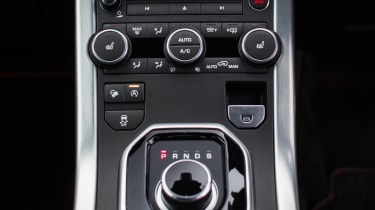Used Range Rover Evoque review: 2011 to 2018 (Mk1) - Reliability and common problems
The Range Rover Evoque does not have a good reputation for reliability and repair costs can be quite high
Land Rover has never had a problem making its products look classy and well built, but customers have often reported reliability issues in the long term. Electrical issues are a particularly common issue, plus the infotainment set-up is often a source of trouble for owners.
The Range Rover Evoque isn’t going to be a total disaster to own, because it’s still a relatively new car built to modern standards by a globally successful car maker, but if you are expecting it to be as dependable as an SUV from Kia or Toyota of around the same price, you will likely be disappointed.
How reliable is the Range Rover Evoque?
Servicing is required annually or every 16,000 miles – whichever comes first. Budget around £350 for a minor check-up and £450 for a major if you use a Range Rover dealer. All the engines are belt-driven and a new cambelt is required every 10 years; this should cost roughly £600. Range Rover has offered three and five-year service packs since 2013 and if you find an Evoque with some life left in these policies, they’re fully transferable between owners.
Expect to pay £100 for a set of brake pads and £110 for discs from a dealer, but consider using an independent garage or buy them yourself for fitting, because pads can be much cheaper elsewhere.
Are there any common problems or things to look out for?
Known weak spots include prematurely ageing leather seats and thunks from the rear suspension, so look and listen out for these on a test drive. The boot’s parcel shelf can rub against the body, so inspect the areas where it touches paintwork, as a partial respray can be necessary if this has worn badly.
Leather interior trim can get baggy, especially on the front seats, and you should listen out for clunks from the suspension when test driving as this is a common fault and is expensive to repair.
Also note the heated windscreen is a nice extra, but some drivers find the elements are visible when driving at night; pull into a shady area to check this if you’re inspecting a car during daylight hours. Finally, be wary of Evoques with 20-inch alloy wheels. They look the business, but can be pretty uncomfortable over bumps.
What about recalls?
Land Rover has recalled the Evoque several times. Two came in December 2012, one concerning potential steering failure and another to do with brake problems. A further recall was issued in 2013 due to a potential diesel leak, while a 2014 recall was prompted by a weak suspension component.
More reviews
The Evoque was recalled again in December 2015 because of a possible issue with the engine cutting out (affected cars were built between July and October 2015). A fuel leak was identified for cars built between March 2015 and April 2016 and that was also the subject of a recall.
A handful of cars were recalled in 2016 to fix a suspension fault, then two more issues were sorted that year: a wiring problem and an airbag fault. In 2017 a fuel tank issue was rectified and then in 2018 and 2019 there were some more recalls relating to the fuel system.
What do owners think?
Owners have told us over the years that the Range Rover Evoque suffers from poor reliability. For example it only managed a 114th place finish (out of 150 cars) for reliability in our 2016 Driver power customer satisfaction survey, then in 2017 23.7 per cent of owners reported experiencing a problem with their car at least once. The most common complaint was related to the electrics.
Surprisingly for such a stylish model, owners mark down the exterior, largely because of fit and finish issues. Other problems include practicality and interior build quality, while performance, handling and safety were more highly regarded.













